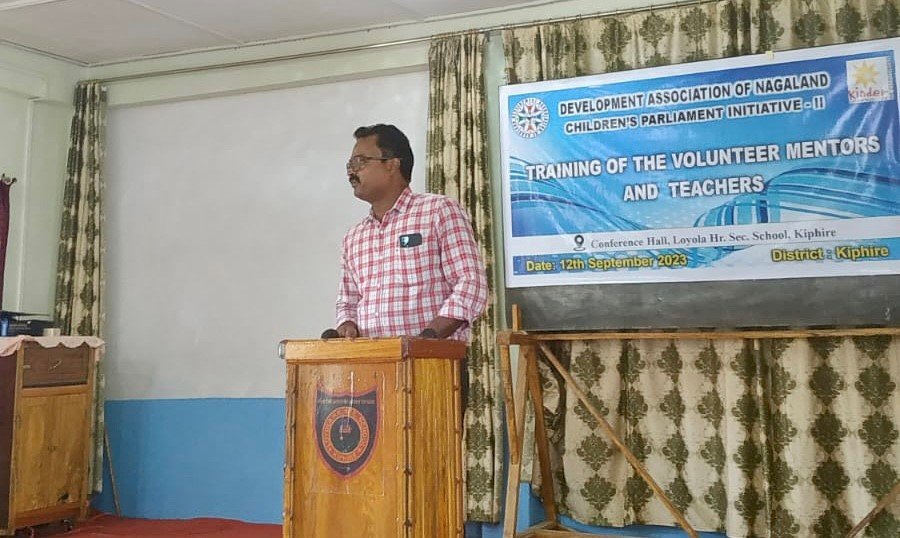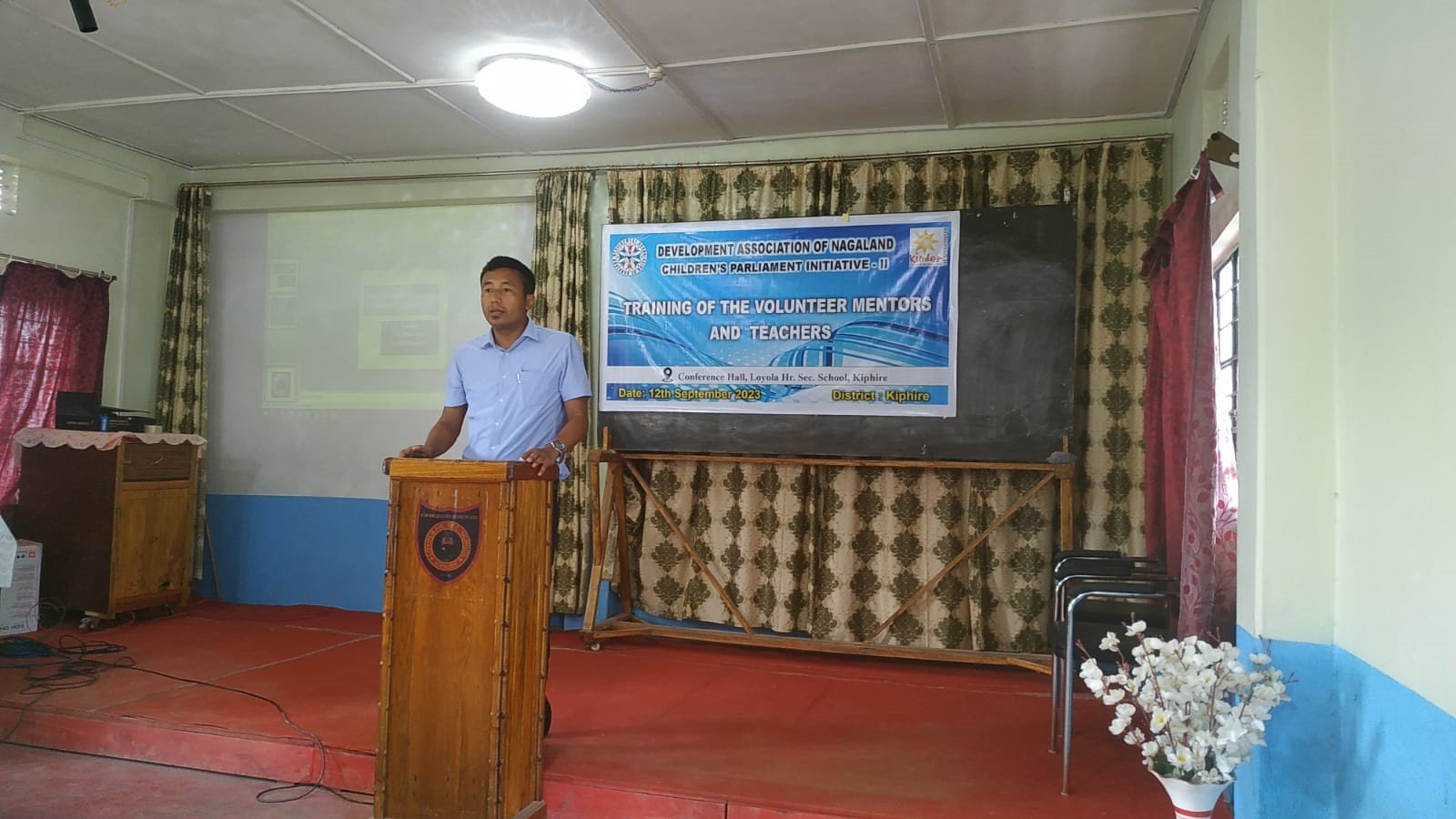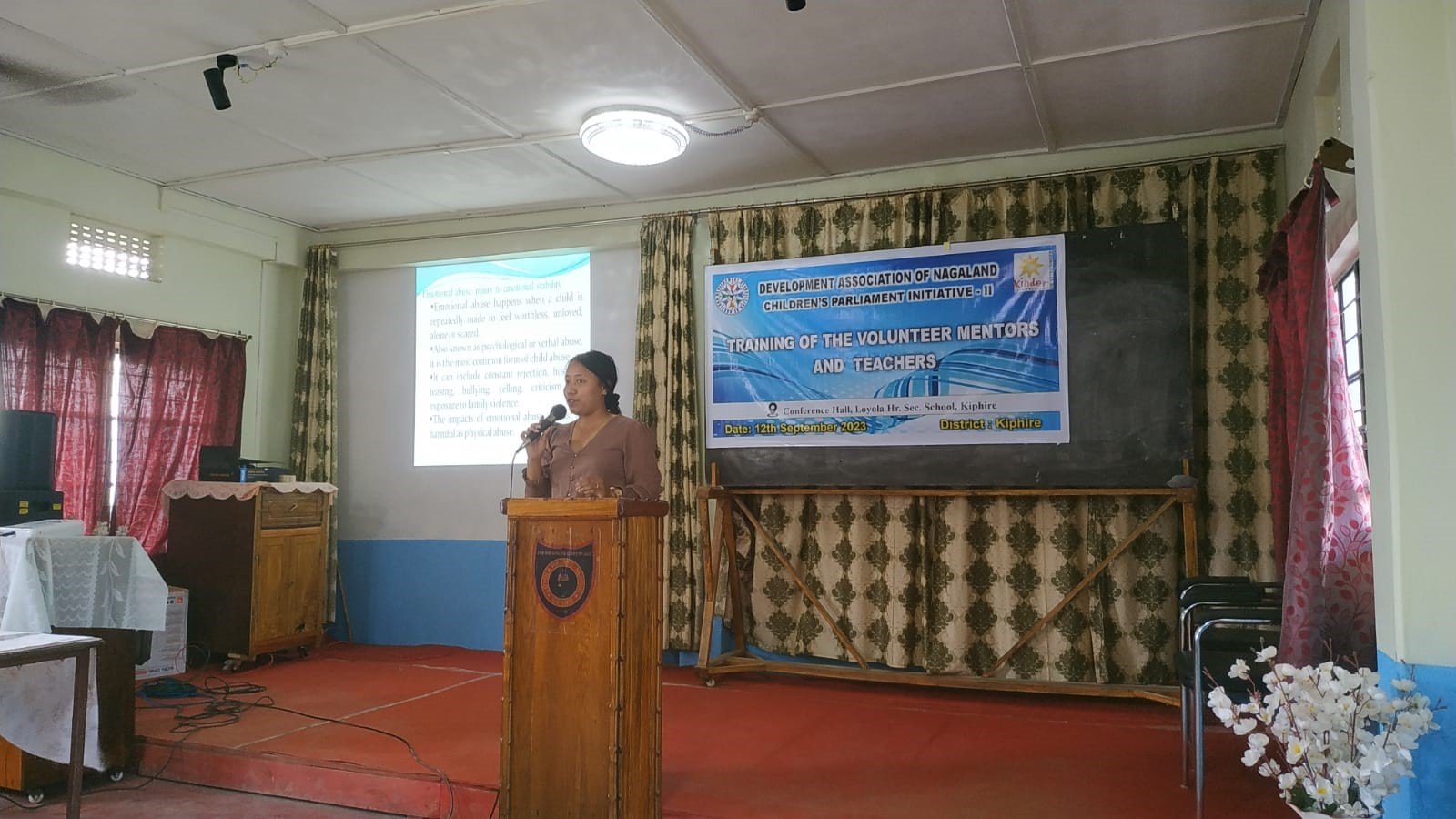The Phase II training of the volunteer mentors and teachers organised by the Development Association of Nagaland Children’s Parliament Initiative (DANCPI) was held at Loyola Higher secondary school Conference Hall on Tuesday.
Highlighting the purpose and mission of the initiative, Jiji Joseph, Senior Programme Officer (DANCPI) stated that the children’s parliament is a national and international movement focused on the educational and governance knowledge and an opportunity where students can understand the working mechanism of the government, and have access to the right disposals under the government set up.

According to Joseph, the children’s parliament is a collaborative effort of teachers, public, government and mentors where children visit certain government institutional meeting and interact with its in-charges and officers to understand its functions and administration.
“Under the Indian constitution, children have nine specific rights which are essentials for their fruitful survival and growth. And therefore, we should be a facilitator in this journey to bring up responsible citizens of the country,” stated Joseph.
The Senior Program Officer also briefed the gathering on the activities of the DANCPI which was established in 1985 with its initial projects mostly focusing on education, building schools, colleges and hostels. At present DANCPI has expanded its focus towards rural livelihood such as upliftment of SHGs, community health sectors, and inclusive growth and upliftment of children with disabilities.

Resource person Holiba A Anar, Medical Officer District Hospital Kiphire spoke on the topic ‘Role of an Educator in Social Emotional Development of a Student’.
“Educators are the positive role model for the students who can enhance children’s social and emotional well being. At the same time, the educators should also be aware that in order for the students to be socially and emotionally independent the teachers should know the importance of their own emotional well-being,” said Anar advising the educators to provide the students with emotional security they need where they feel accepted, valued and appreciated.
Citing a research by Jennings and Greenburg (2009), Anar pointed out that self-awareness, social awareness, cultural awareness, pro social values and self management are the most important Social Emotional Learning (SEL) competencies for a teacher to possess which will allow them to foster positive relationships with students, maintaining a healthy learning environment, manage challenges and enjoy their jobs. Sharing his experience as a doctor Anar said, “My first priority is my patients, who come in to the hospital. They see hope in us as doctors, I see them as my own”. The same scale applies to any educator be it teachers or parents, according to Anar, to prioritise their students and childrens problem before jumping to any conclusion and treating them with empathy.
Download Nagaland Tribune app on Google Play

Rolila, Administrator, Sakhi One Stop Centre, Kiphire spoke on the topic “Role of Educators in Preventing and Responding to Child Abuse”. Rolila highlighted that child abuse can be in many different forms such physical abuse, sexual abuse, grooming, emotional or psychological harm, negligence or family violence, which may be committed by any members of the community, including someone within the child’s family or someone within the set-up or a person who is in a position of trust as well.
“As adults we are all a part of caregivers and therefore play a vital role in protecting children from harm, supporting them to build relationships that are safe and respectful, as well as identifying and responding to suspected abuse within home, community and school’s etc.” said Rolila.

Rolila stressed on ways in which teachers and mentors can perform to prevent child abuse such as enabling children to feel worth while attending classes, cultivating a habit of openness, creating a safe space for children to share their problems and further initiate discussions on child abuse during PTA (Parents Teachers Association) meetings.

